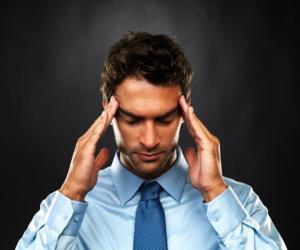How to get a Better Night's Sleep

Having a troubled sleep makes us wake up feeling all the more tired in the morning. Some of the reasons for sleep loss are very clear. It can include a crying infant, noisy neighbors, or even espresso nightcaps. Thomas Roth, PhD, director of the Sleep Disorders Center at Henry Ford Hospital in Detroit noted that many people assume that the reason for their loss of sleep is because of one particular reason, but it may be due to some other factors as well.
Most of us wake up in the middle of the night for a few minutes and may not remember it the next morning. If an individual consistently wakes up during the night, it will affect his or her well-being.
The causes for sleep deprivation:
- Pets in the bed
Studies have shown that the presence of pets in the bed makes it difficult to have a sound sleep. About 53% of people in a survey conducted by researchers at Mayo Clinic Sleep Disorders Center were of the opinion that pets disturb their sleep. This is mainly because a human's sleeping pattern is different than a dog's. The sound of the tags on the animal’s collar as it moves can also be a disturbance for a comfortable sleep. If you are thinking of having a nice slumber, choose another spot for your pet.
- Alcohol
Alcohol is a culprit in disturbing sleep, as it affects the normal rhythm of rest. It acts as a sedative in the beginning, and as the levels of alcohol fall in the blood after some time, the sleep breaks. The best way to prevent this is to avoid having alcohol one to two hours before sleep time.
- Gastroesophageal reflux disease
People with gastroesophageal reflux disease (GERD) often find it difficult to sleep, as the acid gets back into the esophagus, causing heartburn, when they lie down to sleep. Ronald Kramer, MD, a spokesperson for the American Academy of Sleep Medicine and specialist at the Colorado Sleep Disorders Center in Englewood, is of the opinion that GERD is a very common cause for sleep problems, and he often screens for these disorders whenever someone approaches him with sleep loss. This screening is significant because disturbed sleep might be the only symptom GERD will be presenting in some people. The reflux can happen without pain and wake the person in the middle of the night. Treating GERD is the best option for a comfortable sleep, if it is the cause of disturbed sleep. It will help to avoid other serious medical conditions too.
- Medicines, vitamins and supplements
Another common cause for sleep troubles might be the use of certain medications, such as steroids for asthma or the beta blockers for hypertension. Narcotics, like the opioid drugs, taken for pain may cause drowsiness initially, but may lead to sleep apnea later on. Botanical supplements, like ginseng and guarana, are stimulants and can cause disturbed sleep. Vitamin B6 and B12 are known to cause vivid dreams and break the sleep. These should ideally be taken in the morning for a comfortable sleep. People with chronic sleep problems should mention the drugs and supplements that they are taking to see whether any of them can cause sleep loss.
- Pain
Any painful condition – headaches, back pain, arthritis, fibromyalgia, and menstrual pain – can cause disturbed sleep. One often does not realize that even mild pain can result in sleep apnea. The pain signals sent by the body are enough to reduce sleep time. The person may not wake up, but the sleep might be less restful. People with chronic pain often wake up with exhaustion.
- Exhaustion
Against general belief, being exhausted does not make sleeping easier at night. The body may still not be ready for sleep, so being sleepy and being exhausted does not go along together. After a stressful day, it is better to relax for sometime before going to bed. This will prevent the struggle to fall asleep.
- Sleep disorder
Sleep disorders are conditions that interfere with the quality of rest. Periodic limb movement disorder is one such condition in which the legs jerk rhythmically affecting the restful sleep. Sleep apnea causes snoring and brief interruptions in the sleep.












